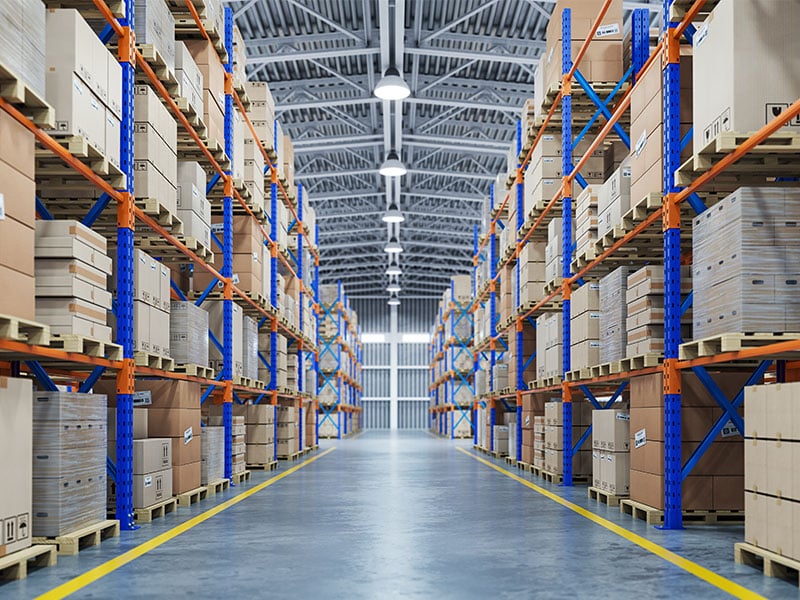
In the bustling metropolis of Kolkata, the significance of efficient warehousing cannot be overstated. As a key player in the economic landscape of India, Kolkata’s warehouses serve as crucial nodes in the supply chain, facilitating the seamless flow of goods across industries. This article aims to delve into the diverse facets of warehouses in Kolkata, exploring their role, challenges, and the innovations shaping their future.
1: The Economic Prowess of Kolkata
Kolkata, the cultural capital of India, is also a major economic hub. Its strategic location, with access to the Bay of Bengal, has made it a vital trade gateway for centuries. As trade and commerce flourish, warehouses play a pivotal role in ensuring that the products are stored, sorted, and distributed effectively. The city’s economic prowess is intricately linked with the efficiency of its warehouse infrastructure.
2: Diverse Industries, Varied Warehousing Needs
Kolkata is home to a diverse range of industries, including manufacturing, textiles, technology, and more. Each sector comes with its unique warehousing requirements. The city’s warehouses are adapted to store a multitude of products, from raw materials to finished goods. This versatility is a testament to the adaptability of Kolkata’s warehouse industry, catering to the diverse needs of the local and national economy.
3: Infrastructure Challenges and Innovations
Despite being a key economic player, Kolkata faces infrastructure challenges that impact its warehouse operations. Limited space and outdated facilities have been longstanding issues. However, the industry has been quick to adopt innovative solutions. Automated storage systems, RFID technology, and advanced inventory management systems are transforming warehouses into smart, efficient spaces.
4: Strategic Location: A Gateway to the East
Situated on the eastern bank of the Hooghly River, Kolkata is strategically positioned to serve as a gateway to the eastern part of India. This geographic advantage makes it a natural choice for companies looking to establish distribution centers and warehouses. The city’s warehouses act as crucial links in the supply chain, connecting manufacturers to consumers in the eastern region.
5: Logistical Challenges and Solutions
Logistics is the lifeblood of any warehouse operation. Kolkata, with its congested traffic and narrow lanes, presents logistical challenges that require innovative solutions. The emergence of third-party logistics providers and the integration of technology in route optimization are addressing these challenges. Additionally, collaborations between public and private sectors are working towards improving the overall logistical framework in the city.
6: Employment Opportunities and Skill Development
The warehouse in Kolkata has not only contributed to the economic growth of the city but has also been a significant source of employment. From warehouse managers to forklift operators, a diverse range of skill sets is required to keep these operations running smoothly. The industry has also witnessed an increased emphasis on skill development programs to ensure a qualified workforce that can adapt to the evolving technological landscape.
7: Environmental Sustainability in Warehousing
With the global focus on sustainability, warehouses in Kolkata are increasingly adopting eco-friendly practices. From energy-efficient lighting to green building designs, efforts are being made to reduce the environmental impact of warehouse operations. The integration of solar power and rainwater harvesting systems is becoming more common, showcasing a commitment to sustainable practices within the industry.
8: Government Initiatives and Policies
The government plays a crucial role in shaping the warehouses in India through policies and initiatives. In Kolkata, there have been concerted efforts to improve infrastructure, streamline regulatory processes, and promote investment in the warehousing sector. Understanding the regulatory landscape is vital for businesses looking to establish or expand their warehouse operations in the city.
9: Emerging Trends and Future Prospects
As technology continues to evolve, the warehouse industry in Kolkata is poised for significant transformations. Robotics, artificial intelligence, and the Internet of Things (IoT) are gradually becoming integral components of warehouse operations. The future promises increased efficiency, reduced costs, and enhanced safety within these spaces. Additionally, the rise of e-commerce and the growing demand for last-mile delivery services are likely to shape the trajectory of warehousing in Kolkata in the coming years.
Also Read: Warehousing in Howrah: A Flourishing Hub in Eastern India
Conclusion:
In conclusion, warehouses in Kolkata are not just storage spaces; they are dynamic hubs that contribute significantly to the economic vibrancy of the region. From overcoming logistical challenges to embracing technological innovations, the warehousing sector in Kolkata is adapting to the changing demands of the global economy. As the city continues to evolve, so too will its warehouses, playing a pivotal role in the growth and prosperity of Kolkata.